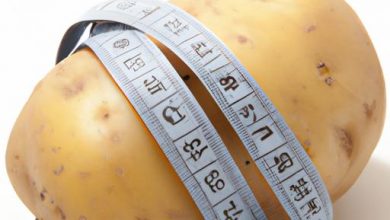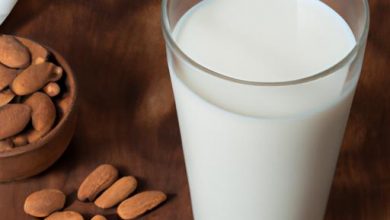100g Chicken Breast Nutrition: What You Need to Know
Chicken is a popular protein source for many people, and for a good reason. It’s low in fat, high in protein, and contains essential vitamins and minerals that are beneficial to the body. In this article, we will discuss the nutritional values of 100g chicken breast and its health benefits.
Nutritional Values of 100g Chicken Breast

100g chicken breast contains approximately 165 calories, 31 grams of protein, 3.6 grams of fat, and zero carbohydrates. It’s a great source of lean protein, making it an excellent choice for those who are trying to build muscle and lose weight. Chicken breast is also low in saturated and trans fats, which can help reduce the risk of heart disease.
When it comes to micronutrients, 100g chicken breast is rich in vitamin B6, niacin, and selenium. Vitamin B6 is essential for brain function and helps your body produce serotonin, a hormone that regulates mood. Niacin, also known as vitamin B3, helps convert food into energy and maintains healthy skin, nerves, and digestion. Selenium is a powerful antioxidant that helps protect your cells from damage and supports a healthy immune system.
Chicken breast is also a good source of phosphorus, which plays a crucial role in bone health and helps your body convert food into energy. Additionally, it contains small amounts of other essential vitamins and minerals, including vitamin K, vitamin B12, iron, and zinc.
In summary, 100g chicken breast is a nutrient-dense food that provides an abundance of macronutrients and essential micronutrients, making it a healthy addition to any diet.
Vitamins and Minerals in 100g Chicken Breast
As mentioned earlier, 100g chicken breast is rich in vitamins B6 and B3, selenium, and phosphorus. These micronutrients play a crucial role in maintaining overall health and wellness.
Vitamin B6 is involved in over 100 different enzyme reactions in the body, making it an essential nutrient. It helps produce neurotransmitters that regulate mood and supports the immune system. Vitamin B6 deficiency is rare but can lead to anemia, depression, and weakened immune function.
Niacin, also known as vitamin B3, helps the body convert food into energy and maintains healthy skin, nerves, and digestion. It’s an essential nutrient that has been shown to lower cholesterol levels and reduce the risk of heart disease.
Selenium is a powerful antioxidant that helps protect your cells from damage and supports a healthy immune system. It’s also essential for thyroid function and plays a role in regulating the metabolism.
Phosphorus is an essential mineral that plays a crucial role in bone health and helps your body convert food into energy. It’s also involved in the production of DNA and RNA, which are essential for cell growth and repair.
Vitamins and Minerals in 100g Chicken Breast
In addition to the vitamins and minerals mentioned earlier, 100g chicken breast also contains vitamin K, which is essential for blood clotting and bone health. It’s also a good source of vitamin B12, which helps maintain healthy nerve function and is necessary for the production of red blood cells.
Iron is another mineral found in chicken breast, which is essential for carrying oxygen throughout the body. Zinc is also present in small amounts and plays a role in immune function, wound healing, and cell growth and repair.
Overall, 100g chicken breast is a nutrient-dense food that provides an abundance of essential vitamins and minerals, making it an excellent choice for maintaining overall health and wellness.
Health Benefits of Eating 100g Chicken Breast
Eating 100g chicken breast has numerous health benefits, including weight management, muscle building, and overall health improvement.
One of the primary benefits of chicken breast is its high protein content. Protein is essential for building and repairing muscle tissue, making it an excellent food choice for athletes and individuals who are physically active. It also helps keep you feeling full and satisfied, which can aid in weight management.
Chicken breast is also low in calories and fat, making it an ideal food choice for individuals trying to lose weight or maintain a healthy weight. It’s a great source of lean protein that can help you feel full and satisfied for longer periods, reducing the likelihood of overeating.
Additionally, chicken breast is a good source of essential vitamins and minerals that support overall health and wellness. As discussed earlier, it contains vitamins B6, B12, K, and niacin, as well as minerals such as phosphorus, iron, and zinc. These nutrients play a crucial role in maintaining healthy bone density, regulating metabolism, and supporting immune function.
In summary, 100g chicken breast is a healthy and nutrient-dense food that provides numerous health benefits. Its high protein content, low calorie and fat content, and essential nutrients make it an excellent food choice for individuals who want to improve their overall health and wellness.
Risks and Precautions
While chicken breast is a healthy and nutritious food, there are some potential risks and precautions associated with eating it. One of the most significant risks is foodborne illness, which can be caused by bacteria such as salmonella or campylobacter.
To reduce the risk of foodborne illness, it’s essential to cook chicken properly. The internal temperature of the chicken should reach 165°F (74°C) to kill any harmful bacteria. It’s also important to avoid cross-contamination by washing your hands, utensils, and cutting boards thoroughly after handling raw chicken.
Another potential risk of eating chicken is the presence of antibiotics and hormones. While the use of antibiotics and hormones in chicken production is legal in some countries, it’s banned in others. If you’re concerned about the use of antibiotics and hormones in your food, look for labels that indicate the chicken is free from antibiotics and hormones.
Conclusion
In conclusion, 100g chicken breast is a nutrient-dense food that provides an abundance of macronutrients and essential micronutrients, making it a healthy addition to any diet. It’s a great source of lean protein and contains essential vitamins and minerals that are beneficial to the body.
However, it’s important to cook chicken properly to avoid the risk of foodborne illness and be aware of the potential presence of antibiotics and hormones in chicken production. By following food safety guidelines and choosing high-quality chicken, you can enjoy the health benefits of 100g chicken breast while minimizing the potential risks.
At Zahnweiss Info, we believe in the importance of a healthy and balanced diet. By incorporating 100g chicken breast into your meals, you can support your overall health and wellness. So, go ahead and enjoy this delicious and nutritious food!



